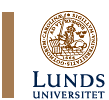

|
Panel No. 41Panel Title: The Political Economy of BangladeshConvenor: Dr
Willem van der Geest, European Institute for Asian Studies,
Brussels, Belgium Thursday 8 July, 13–18 Panel Abstract: The panel will bring together young as well as established scholars with an active research interest in political and economic developments in Bangladesh and their implications for its relations within South Asia and globally. Presentations within the broad theme of governance at the national, district and urban/rural levels as well as within specific sectors such as health, education, export industries, etc. are particularly welcome. The panel also seeks to analyse the interactions between external actors (multilateral institutions, development finance institutions, donors, foreign investors) and domestic actors (state and non-state) in terms of political and economic motivations and interests and how these determine the outcomes and impacts of these interactions.
Papers accepted for presentation in the panel:paper Giver 1: Dr. Willem van der Geest, Director, European Institute for Asian Studies, Brussels, Belgium Paper 1 Title: Trade Liberalization, Growth and Development: Bangladesh and South Asia Paper Abstract: This paper will compare and contrast the liberalization and growth performance of South Asia since the early 1990s and identify the different patterns between the countries within the region. It will observe the extreme degree of export specialization which Bangladesh experienced in terms of sectors and products. The high degree of specialization in the RMG-sector will face an increased and intensive competition during the post-MFA period. Hence, much of the comparative advantages realised are unlikely to be sustainable in a dynamic sense, affecting the growth and development outlook for Bangladesh strongly negatively. This is likely to intensify the already very serious governance crisis which the country faces today. Paper Giver 2: Dr. Mobasser Monem, South Asia Institute, Heidelberg University, Germany Paper 2 Title: Confrontational Political Culture and Economic Liberalisation in Bangladesh: Is there a Link? Paper Abstract: Confrontational Politics in the Bangladesh has grown into a frightening scale and dimension in past few years, tearing apart social fabrics and causing havoc on the nation's democracy and economic advancement. On the political side, a bipolar polity has, to some extent, contributed to the confrontational style of our national politics that is undermining the working of the parliamentary system. From confrontational approach to politics among the main political parties has created a tendency to use violence in politics, as a result of which a breed of young people has entered national politics, who are locally called mastans (musclemen) commonly referred to as terrorists, though cannot be certainly categorized as such in real sense. On the economic front, within nearly three decades of its independence, Bangladesh has moved from an economic policy of socialist transformation to the restoration of a open economy by way of economic liberalisation in terms of substantial privatisation. Successive ruling parties used liberalisation process to reward clienteles, thus deliberately selected policy measures that could be taken advantage of only by its supporters, those who were not linked with the ruling party were left out of this network of patronage distribution. Against this backdrop, the paper investigates as to whether there is a link between confrontational political culture and economic liberalisation in Bangladesh? Paper Giver 3: Professor Golam Hossain, South Asia Institute, University of Heidelberg, Germany Paper 2 Title: Islam and Challenges of Development in Bangladesh Paper Abstract: The recent democratisation in the islamic social setting of Bangladesh has drawn World attention with appreciation that Islamic countries could be democratic and build a society under a liberal economic policy. Democratisation which began since 1991 has, however, advanced with a number of challenges, promises and hopes as well as frustrations. The increased rise of Islamic fundamentalists their demands for the establishment of an Islamic society have apparently created several hindrance to the required reform policies of the successive governments. Despite peaceful succession of governments through electoral means, and a reasonable economic growth at about 4\5 per cent annually, the deteriorated law and order situation, continuous opposition boycott of parliamentary sessions and their often use of fearful languages, political enmity and violent agitational politics instead of debate and discussion in the parliament, political patronage and rampant corruption, high handedness of the bureaucrats and a common practice of bribe, the sky rocketed prices of essential commodities, uncounted unemployment, commission taking and toll collection from businessmen by mastans and hoodlums, government's confession at public of the decline of quality of education at all levels- had all put the expected fruits of democracy into the basket of disappointment, frustration and impatience. Transparency International 2004 Global Corruption Report commenting on the Bangladeshi politicians as the most corrupt in the World has also raised alarm for the sustainability of country's young democracy. How then the civil democratic governments with regard to their performances differ from their militray counterparts? The visible incapability and performance failures of most political leaders posed challenges on the credibility of the political leaders to govern the 125 millons- half of whom live below poverty line. As the political parties lack democartic practice inside them, the people in general suffer from unique type of personalistic authoritarian rule, however, in the name of people's mandate. At the backdrop of state control of the public enterprises, reform for privatisation and liberalisation- necessary condition for the growth of free enterprises and democratic institutions-remained in slow progress. Foreign investment in the recent years also declined for fear of political volatility and rise of `local terrorists´ who are being patronaged by some influential political leaders. At a miserable record of human rights, a large percentage of the rural women has no position in the society and therefore, lack any status-a situation contrary to the teachings of Islam. The NGOs with the help of donor countries, although have made on the one hand, some contributions to rural poverty alleviation and health improvements, offer opportunities on the other, to the rise of a highly salaried bureaucracy with no accountabilty and any real commitment to the social change. The huge mass of rural poor are trapped into subsistence level. The NGO leaders have also got involved in political activities and become divided along the national political party lines. Civil society bodies who have worked unitedly earlier for the cause of democratic developmnent are also now divided and weakened. Bangladesh's endevaour for democartisation and economic development through liberalisation should, therefore, be addressed by skilled and honest leadership, and with caution because of the power of Islam as the most effective instrument for political gains. Paper Giver 4: Kazi Maruful Islam, PhD Research fellow, Center for Development Research, Department of Political and Cultural Change (ZEFa), University of Bonn, Germany Paper 4 Title: Local Democracy and Central-local Relation: An analysis of the central- local relation and its impact on the local democracy in the Urban Local Government System of Bangladesh Paper Abstract: This paper aims to analyse the influence of local-central government relation on local democracy. For the analytical purpose the paper assumes that the level of local democracy in Bangladesh in the context of local government system is very poor; poor in terms of its responsiveness to and engagement with local people, opportunities for citizen’s participation, clear roles and responsibilities for elected officials including representations of their communities and effective mechanisms for accountability to local citizens. Thus, this paper would like to explain why the level of local democracy remains very poor after so many years of being introduced. In doing so, I do regard central-local relation as one of the key factor which determine the level of local democracy in Bangladesh. Local democracy is a function of a wide range of structural-institutional, political, and social factors of a particular locality in which a system of local government operates. These factors include local government finance, legislation, central-local relation, elections, internal-structure, local capacity, presence of a active citizen body and many others. This paper argues among all of them the central-local relation is the key, determining one. It is not a stand-alone factor, rather, in practice, it shapes, determines, controls and influences the extent to which other factors could come into play. Thus, this paper takes into consideration local-central relation as the explaining variable of poor level of local democracy in the sphere of local government in Bangladesh. Paper Giver 5: Bob Pokrant, South Asia Research unit, Curtin University of Technology, Perth, Australia Paper 5 Title: From small fry to the global shrimp: studying the Bangladesh shrimp export sector in its global context Paper Abstract: This paper reports on the results of a long-term research project carried out on the Bangladesh shrimp export sector. The main research site was the Chittagong-Chakoria-Cox’s Bazar triangle in South-eastern Bangladesh which contains a concentration of shrimp farms, shrimp hatcheries, processing plants and other shrimp-related activities. The paper describes the main components of the sector which includes processing plants, shrimp supply networks, shrimp depots, shrimp farms, local trading, artificial hatcheries and wild fry collection. Among the themes discussed are labour markets, gender divisions of labour, forms of property ownership and control, financial linkages through investment, money lending and advances, local environmental and social impacts of shrimp farming, and the links between the local industry and global markets for shrimp. Theoretically the paper argues that explanations of the dynamics of the sector require a combined anthropological, historical and political economic approach which focuses on how local activities are shaped by networks of relationships extending from the shore line to consumer markets in the developed world. Methodologically, this requires a multi-sited field work approach which allows the observer to work at several nodes of activity but focusing on the cultural, social, economic and political processes that connect these nodes across time and space. Paper Giver 6: Professor
A. M. Mohsin, Member, Bangladesh University Grants Commission Paper 6 Title: Education Reform in Bangladesh Paper Abstract: Bangladesh inherited an educational system from the British colonial rulers. After the establishment of British rule, the rulers sustained for a time the traditional educational system as they had to decide what could be the educational policy best suited to them. Throughout the 19th century they gradually developed an educational system for the country from primary to university level and the same time retained the traditional educational system which is commonly known as Madrasa educational system for the Muslims. After 1947, during Pakistan period, a number of commissions were constituted to reform the educational system but their recommendations were never fully implemented. Whenever government control over educational administration and curriculum was imposed, the community resisted. After the emergence of Bangladesh a new commission was set up under a renowned educationist. This commission suggested certain measures to bring uniformity in the educational system throughout the country. But hardly its recommendations could be implemented. Meanwhile several streams of education grew to the country and instructions were given through the medium of English and Bangla-while the Madrasa education with emphasis on religious studies continued, rather their number began to increase. Successive governments tried to improve the situation by constituting education commissions to effect reforms in the sector; but hardly any progress was achieved. Present Government, in the same manner, formed an Education Commission headed by a former Vice Chancellor of the University of Dhaka. The commission is expected to submit its report soon. The highlights of its recommendation have been reflected in the print media. The general impression is that Bangladesh has an education 'system' but has not yet been able to develop an educational 'policy'. The present paper proposes to review the various attempts at reforms in the education sector including curriculum, administration and their effect on the system. What were the impediments to effect reforms in the educational system and how the successive governments tried to remove these impediments and how far they succeeded and how the community reacted to these reforms. In this study the whole question of educational reform in Bangladesh will be brought to light.
SASNET - Swedish South Asian Studies Network/Lund
University
|

